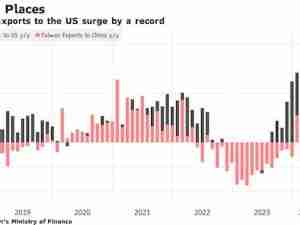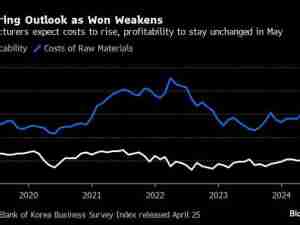U.S. Pares Back Duties on Canadian Lumber in Softwood Spat
By: Josh Wingrove and Andrew Mayeda | Jan 03 2018 at 03:55 PM | International Trade
The U.S. has slapped final anti-dumping and countervailing duties on Canadian lumber, the latest step in another lengthy legal battle over softwood.
The Commerce Department announced slightly lowered initial rates Wednesday for producers West Fraser Timber Co. and Canfor Corp., with combined duties of 23.6 percent and 20.5 percent respectively. Duties for Resolute Forest Products Inc. and Tolko Marketing and Sales Ltd. were unchanged.
The move follows preliminary rulings and determinations. Canada has already launched challenges of the duties and reiterated its objection after Wednesday’s announcement. The Trudeau government argues the duties will leave the U.S. with a shortage of wood.
“U.S. duties on Canadian softwood lumber are unfair, unwarranted and troubling,” Foreign Minister Chrystia Freeland said in a statement. “Canada has already begun legal challenges of these duties under Nafta and through the WTO, where Canadian litigation has proven successful in the past,” she said, adding the government will “vigorously defend our industry and its workers against protectionist trade practices.”
Commerce Secretary Wilbur Ross said the U.S. is confident the World Trade Organization, which may end up having to rule on the dispute, will eventually side with the U.S. “The Trump administration will continue to stand up against unfair trade practices that harm American workers and businesses,” Ross said in a statement. “Even our closest allies must follow the rules.”
Wednesday’s anti-dumping duties cut Canfor’s rate to 7.3 percent from 8.9 percent; maintained the rate for Resolute, Tolko and West Fraser; and cut the rate for all other companies to 6 percent from 6.6 percent.
Countervailing duties were cut for West Fraser to 18 percent from 18.2 percent. The rates for Resolute, Tolko, Canfor and JD Irving Ltd. were unchanged, while the rate for “all others” was cut to 14.2 percent from 14.3 percent. The changes were made after the department agreed with company allegations that “ministerial errors” were made in earlier calculations.
“It’s pretty much a rubber stamp on what we were expecting,” said Kevin Mason, managing director Vancouver-based ERA Forest Products Research. It means Canadian producers will resume paying the countervailing duty, the preliminary version of which had expired, but have the benefit of a relatively predictable environment for the year ahead, he said.
Industry Outlook
“Despite the duties, we’re still going to have prices averaging at still pretty high levels for 2018,” Mason said. “I think most Canadian mills out there are going to be in a pretty good situation.”
Joe Patton, co-chairman of the U.S. Lumber Coalition industry group, argued the Canadian government has hurt his sector by subsidizing its own. “These duties are a fair enforcement of U.S. trade law,” Patton said in a written statement.
Canadian Natural Resources Minister Jim Carr said last month the duties were so far being partially offset by higher lumber prices. The government has announced a funding package to support producers and workers laid off in the sector.








